How to Hire a Java Developer Effectively?
In today’s competitive and ever-evolving business landscape, hiring a skilled Java developer to bring your vision to life and drive your organization to new heights can pose a significant challenge. However, there is no need to worry; we are here to assist you. Securing the services of a proficient Java developer is vital in ensuring the triumph of your project, irrespective of whether you are a burgeoning startup, a small business, or a well-established corporation.
In this guide, we’ll take you through the steps to how to hire Java developer, including where to find them, how to assess their skills, and what questions to ask to ensure you get the best fit for your team. Let’s dive in!
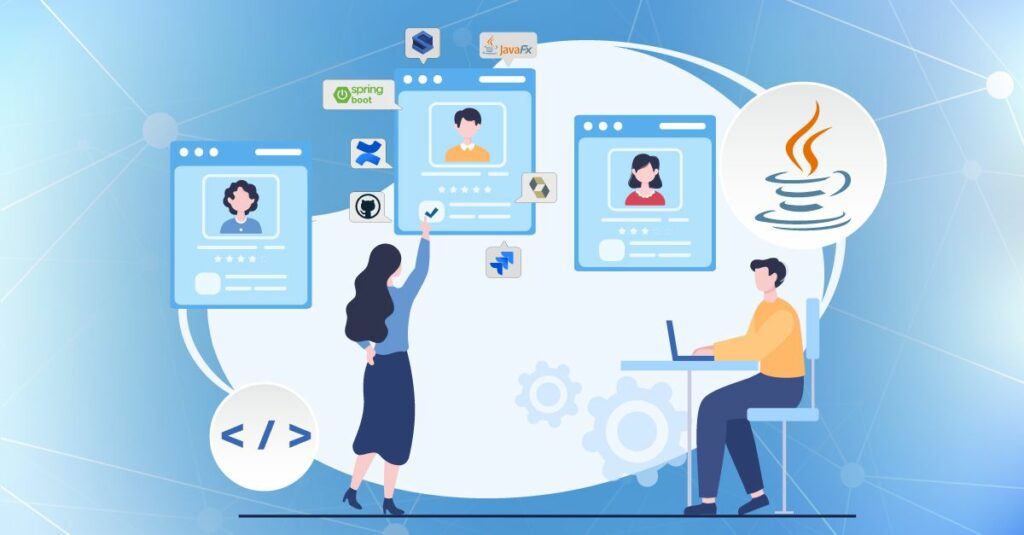
The Importance of Hiring Skilled Java Developers
Hiring skilled Java developers is the key to unlocking your company’s potential. Here are some benefits of hiring skilled Java developers-
- They are proficient enough to use the latest technologies that fit current industry trends.
- Skilled Java developers write clean and efficient code that is easily maintainable.
- Skillful Java developers bring expertise and innovation to the table, helping you build robust, scalable software that meets the demands of today’s fast-paced business world.
1. Identify your Project Needs
To identify your project needs, consider the problem you are trying to solve, the desired outcome, the project scope, the resources available, and the constraints such as budget and timeline. Analyze the requirements and define clear objectives to determine the features and functionalities required for your project.

1.1 Assessing Project Requirements
It is a crucial step in any software development process. It helps to define the project’s scope, identify the target audience, and determine the necessary features to meet their needs.
Here is how you should assess your project requirements-
- Analyze the market and competition to identify strengths/weaknesses to create unique product offerings.
- By analyzing competitors’ features, create project scope lists.
- Create a user persona to identify target audience needs, leading to user-centric products.
- Select competitor features based on user persona for product development that meets the target audience’s requirements.
- Incorporate unique features besides competitors’ and attract users with distinctive selling points.
- Conduct user interviews to gather feedback and improve or add features based on their expectations and needs.
1.2 Choosing the Right Skillset
1. Identifying the desired application type before selecting the technology stack. The appropriate technology will determine whether you plan to create a web, desktop, or mobile application.
2. choose the appropriate technology stack for your project after determining the application type. Consider these technology stacks, categorized according to application type, to help you select the right one.
- For web applications: Java-based frameworks like Spring, Hibernate, Struts, and Play can be used.
- For desktop applications: JavaFX and Swing can be used.
- For mobile applications: Java-based frameworks like Android, JavaFX, and Java ME can be used.
3. To choose the appropriate technology stack, it’s crucial to comprehend the user base and demographics of the product. For example, for products with a large user base, opt for a technology stack that can manage high traffic and offer top-notch performance.
4. To find the optimal technology stack for your project, seek advice from industry experts and technology enthusiasts. Online communities and conferences can help discuss and explore different technology stacks.
5. Before finalizing a technology stack, it’s essential to consider the accessibility of developers proficient in that stack. Ensure to verify the availability of skilled developers for hire or outsourcing to prevent potential project obstacles.
2. Define the Job Description
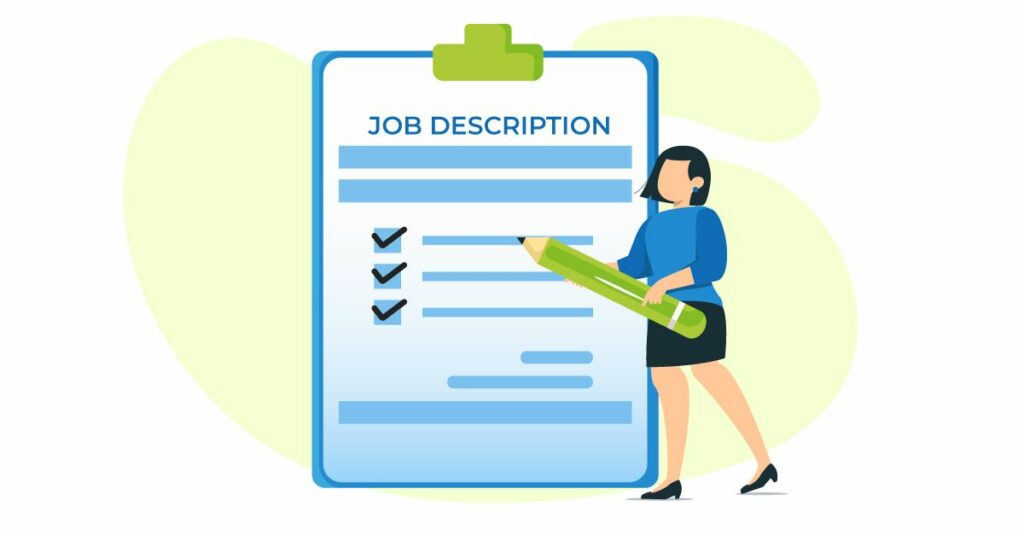
A Java developer will be responsible for the following-
- Creating, testing, and maintaining high-quality software solutions using Java programming.
- Develop and deploy robust, scalable, and secure application systems.
- Write clean and efficient code.
- Efficiently troubleshoot technical issues.
- Collaborate with cross-functional teams to design and implement cutting-edge applications that meet the needs of clients and end-users alike.
2.1 Essential Skills and Qualifications
The essential skills to look for in Java developers are as follows-
- Java developers must have a strong foundation in computer programming concepts such as algorithms, data structures, and object-oriented programming.
- A deep understanding of the Java programming language, including its syntax, core libraries, and frameworks, is essential.
- Knowledge of software development methodologies like Agile, Scrum, and Waterfall is critical for collaborative team environments.
- Experience with software development tools like version control systems, integrated development environments (IDEs), and debugging tools is necessary for efficient and effective development.
- Knowledge of popular frameworks such as Spring, Hibernate, and Struts can significantly enhance a developer’s ability to build robust, scalable, and maintainable applications.
- Strong problem-solving skills, attention to detail, and the ability to work independently and collaboratively are vital attributes of a successful Java developer.
- Familiarity with web development technologies such as HTML, CSS, JavaScript, databases, and SQL is essential for building robust applications.
Qualifications
A bachelor’s degree in computer science, software engineering, or a related field is typically required for entry-level Java developer positions. However, some companies may consider equivalent experience and certifications.
2.2 Preferred Experience and Certifications
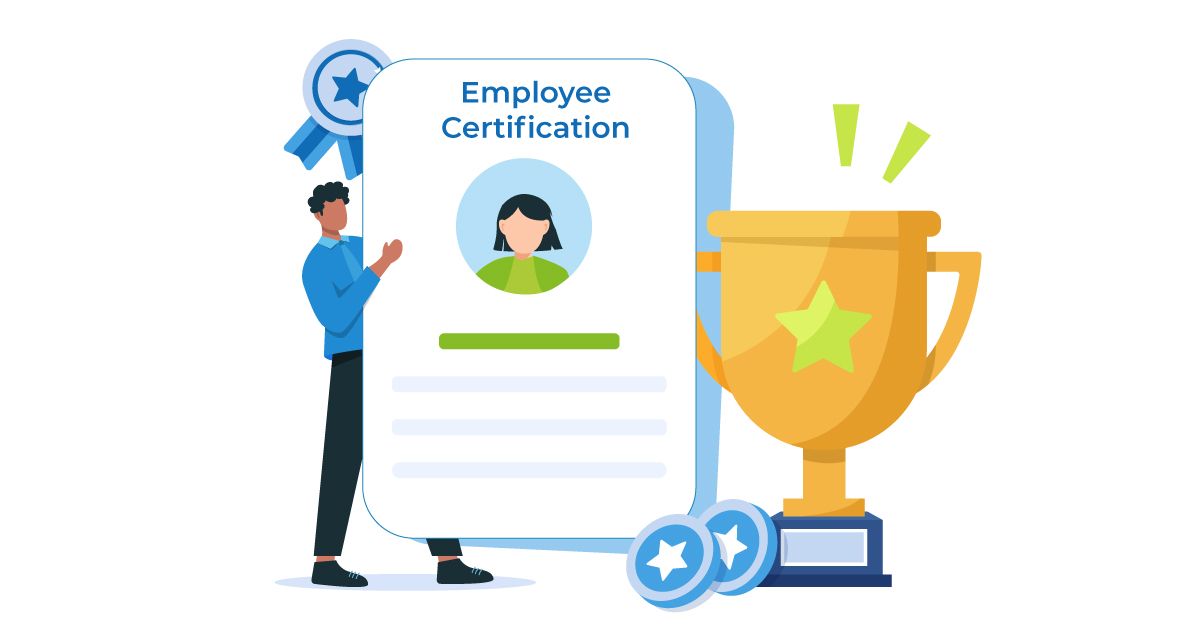
The preferred experience and certifications for a Java Developer are as follows-
- Practical Experience working with Java programming language.
- Demonstrate proficiency in coding, debugging, and maintaining Java-based applications.
- Develop enterprise applications while Experience working in Java frameworks such as Spring, Hibernate, and Struts.
- Experience working with Agile methodology and tools like JIRA, Confluence, and GitHub.
- Relevant certifications include Oracle Certified Professional, Java SE 11 Developer, or Spring Certified Developer. These certifications demonstrate the developer’s knowledge and expertise in Java Development, making them more competitive in the job market.
- Good communication and collaboration skills with other team members to understand requirements and explain technical issues to non-technical stakeholders.
3. Evaluate Technical Skills
Hiring a skilled Java developer is crucial for any software development team. Evaluating their technical proficiency can be challenging. Below we have discussed practical tips and strategies for assessing a Java developer’s technical skills during hiring.
3.1 Coding Tests and Assessments
To conduct a successful coding test and assessment for hiring a Java developer, you should follow the following steps-
- Start by defining the job requirements and selecting relevant coding test questions.
- Choose a suitable coding platform that provides automated evaluation and sets a time limit for the test.
- After the test, provide constructive feedback and explain the rationale behind it.
- Conduct an assessment interview with the successful candidates, covering technical questions related to Java programming and problem-solving, and ask for past Java programming project examples.
These tips will help you evaluate a Java developer’s capabilities and hire the best candidate.
3.2 Sample Projects and Code Reviews
Technical interviews can only tell you so much when hiring a Java developer. To better understand a candidate’s skills, analyzing their sample projects and performing code reviews can provide a more practical evaluation.
Sample projects are a great way to gauge a candidate’s coding style, problem-solving approach, and technical knowledge. Moreover, it would help if you considered several aspects to analyze a sample project effectively. First and foremost, assess its scope and complexity. Additionally, evaluate the documentation provided, the coding standards adhered to, and the use of libraries and frameworks. Furthermore, pay attention to the project’s readability and maintainability, which are crucial factors to consider. Considering these factors, you can gain valuable insights into the candidate’s capabilities and suitability for the desired role.
On the other hand, code reviews involve going through a candidate’s code line by line to identify potential issues and provide feedback. By performing a code review, you can evaluate a candidate’s coding style, problem-solving abilities, and ability to write maintainable code.
4. Assess Soft Skills and Cultural Fit
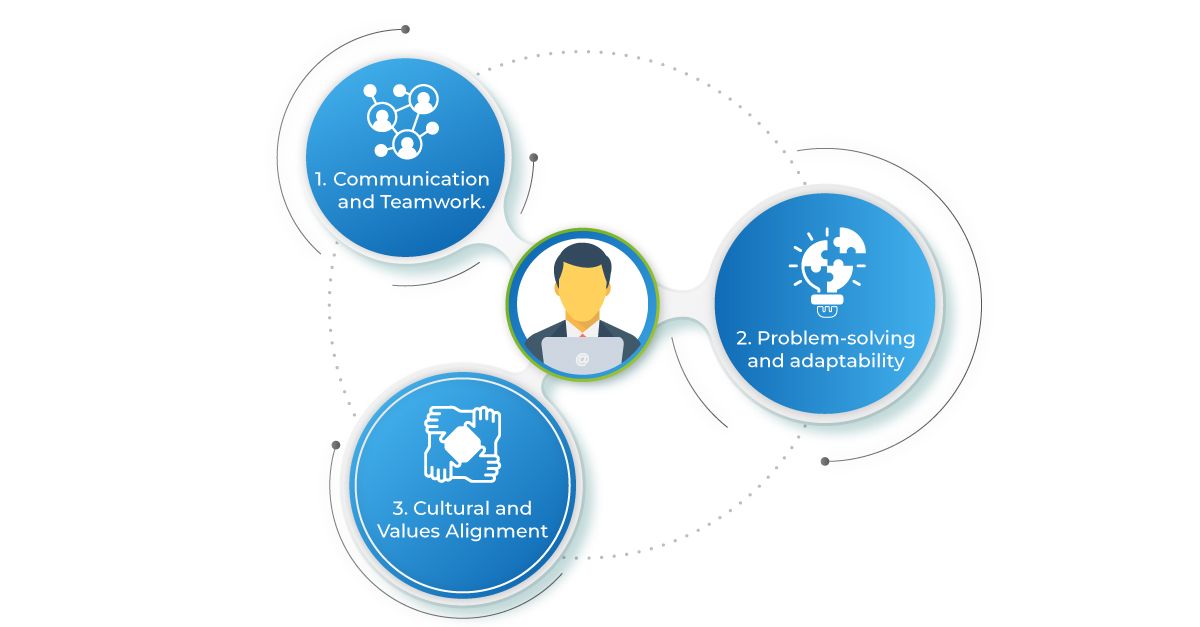
Assessing soft skills and cultural fit is essential for hiring a Java developer who can thrive in a team environment. Here are some tips to help you evaluate these crucial factors.
4.1 Communication and Teamwork
To assess Communication and teamwork abilities, look for relevant experience, ask behavioral questions, and evaluate communication and collaboration skills. Additionally, conducting technical assessments can reveal how candidates work with other team members.
4.2 Problem-Solving and Adaptability
To test problem-solving and adaptability skills, you can conduct a coding test, analyze their coding style and approach, and ask situational questions. Additionally, assessing their ability to learn new technologies and frameworks and conducting pair programming sessions can provide valuable insights into their adaptability skills.
4.3 Alignment with Company Culture and Values
To find a Java developer who shares your company’s values and culture, examine their resume, cover letter, and interview responses. Assess their problem-solving, collaboration, and communication skills, and consider a culture fit assessment or shadowing an employee. It can boost productivity, job satisfaction, and retention.
5. Consider Hiring a Java Development Company
If you’re looking to develop a web application using Java technology, it’s essential to consider hiring a Java development company. Additionally, these companies specialize in creating high-quality Java-based solutions. Moreover, they provide the expertise and resources needed to develop robust and efficient applications. With their knowledge and experience, Java development companies can help you bring your ideas to life and ensure your project’s success.
5.1 Pros and Cons of Working with a Java Development Company
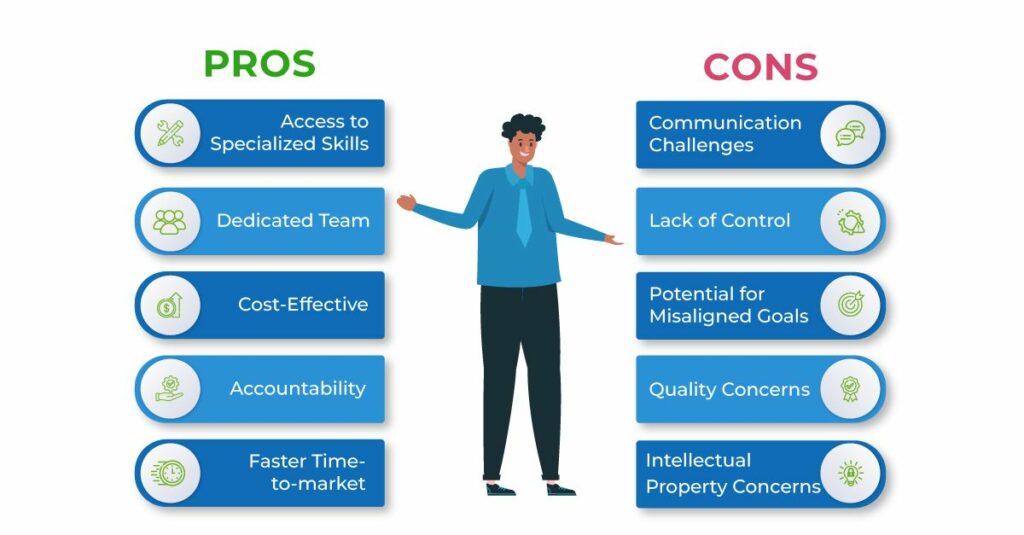
Pros of Working with a Development Company
- Access to specialized skills
- Dedicated team
- Cost-effective
- Accountability
- Faster time-to-market
Cons of Working with a Development Company
- Communication challenges
- Lack of control
- Potential for misaligned goals
- Quality concerns
- Intellectual property concerns
5.2 How to Select the Right Java Development Company
Selecting the right Java development company can be a challenging task for businesses. The key factors businesses should consider when selecting a Java development company.
These factors include the company’s experience and expertise in Java development, portfolio of past projects, development methodology, communication and project management processes, and pricing and contract terms.
By carefully evaluating these factors, businesses can choose a reliable and competent Java development company to meet their development needs.
6. Onboarding and Integrating the Java Developer

Hiring a Java developer is a crucial step toward achieving your business goals. However, more is needed to hire a talented developer to ensure a smooth onboarding and integration process to get the most out of their skills. Let’s briefly discuss onboarding and integrating the Java developer with the team.
6.1 Orientation and Training
To orient and train a hired Java Developer-
- Introduce them to the company culture and their team.
- Provide an overview of the project and explain their role and responsibilities.
- Schedule training sessions to familiarize them with the tools and technologies they will be using.
- Encourage them to ask questions and provide ongoing feedback and support as they get up to speed.
- Provide an overview of the project and explain their role and responsibilities.
6.2 Setting Expectations and Goals
Java Developers’ primary responsibilities will be-
- To write high-quality code, maintain the existing codebase, and collaborate with the team to design and implement software solutions.
- You will be expected to follow coding standards, adhere to project timelines, and contribute to developing new features.
- Your goals should include improving your coding skills, staying updated with the latest technologies, and delivering projects within deadlines.
6.3 Encouraging Collaboration with the Team
- Encourage collaboration by fostering an environment of open communication and inclusivity.
- Ensure that the Java Developer can access all relevant resources and tools, and encourage them to share their ideas and expertise with the team.
- Acknowledge and reward positive contributions made by the Java Developer to the team’s overall success.
Conclusion
Hiring a skilled Java developer is crucial for building high-quality, scalable, secure software solutions. Consequently, this guide provides essential tips for hiring the right Java developer. Firstly, it emphasizes the importance of assessing project requirements. Additionally, it highlights the significance of defining comprehensive job descriptions. Moreover, it stresses the significance of looking for candidates in the right places.
Hiring the best Java developer is essential for creating software that meets the demands of today’s fast-paced business world. Additionally, clients must consider the skills, qualifications, and experience necessary for the position to ensure the candidate’s success. With these tips in mind, hiring a Java developer can be a seamless process leading to successful software solutions.
Hiring the Right Java Developer for Successful Projects
We at Thinkitive have a proven track record in outsourcing Java developers. Consider hiring Java developers from us for successful client project completion.
- Clearly define project requirements with our Subject Matter Expert team.
- Review the candidate’s CVs with relevant Java development experience.
- Assess technical skills through coding challenges or examples of code and Check references and past projects for work ethic, technical skills, and meeting deadlines.
- Evaluate communication and teamwork skills during the interview process.
- Consider using an Agile approach to ensure effective collaboration, communication, and timely delivery.




